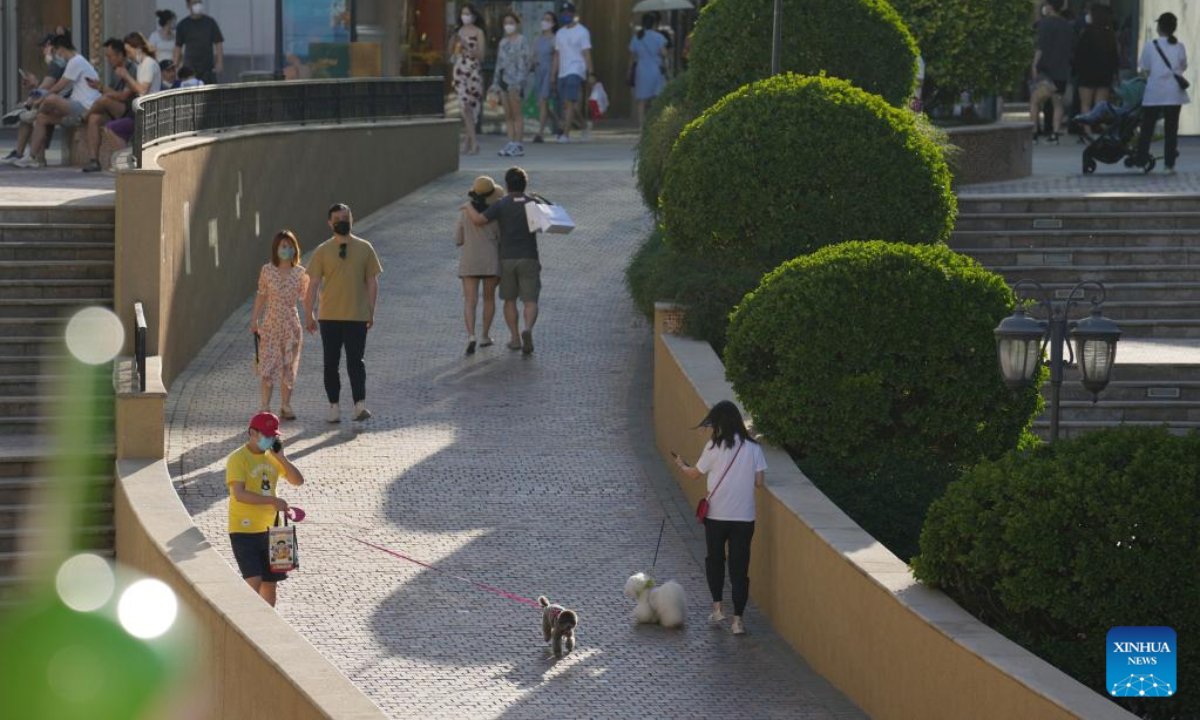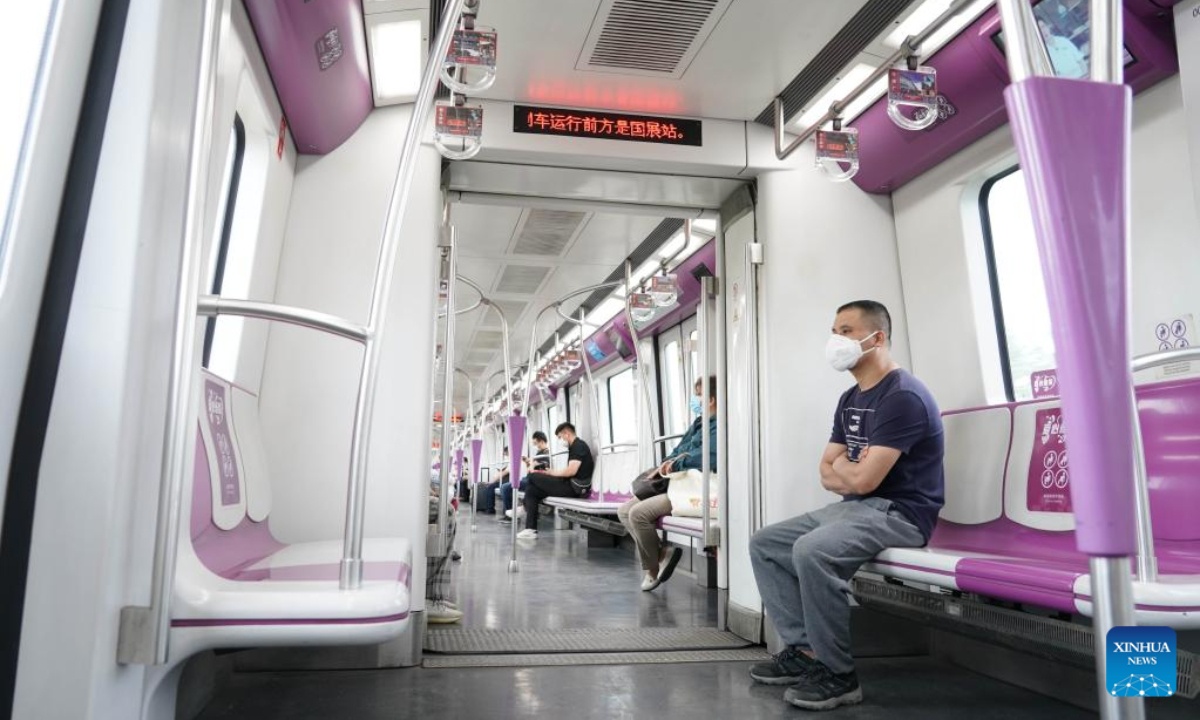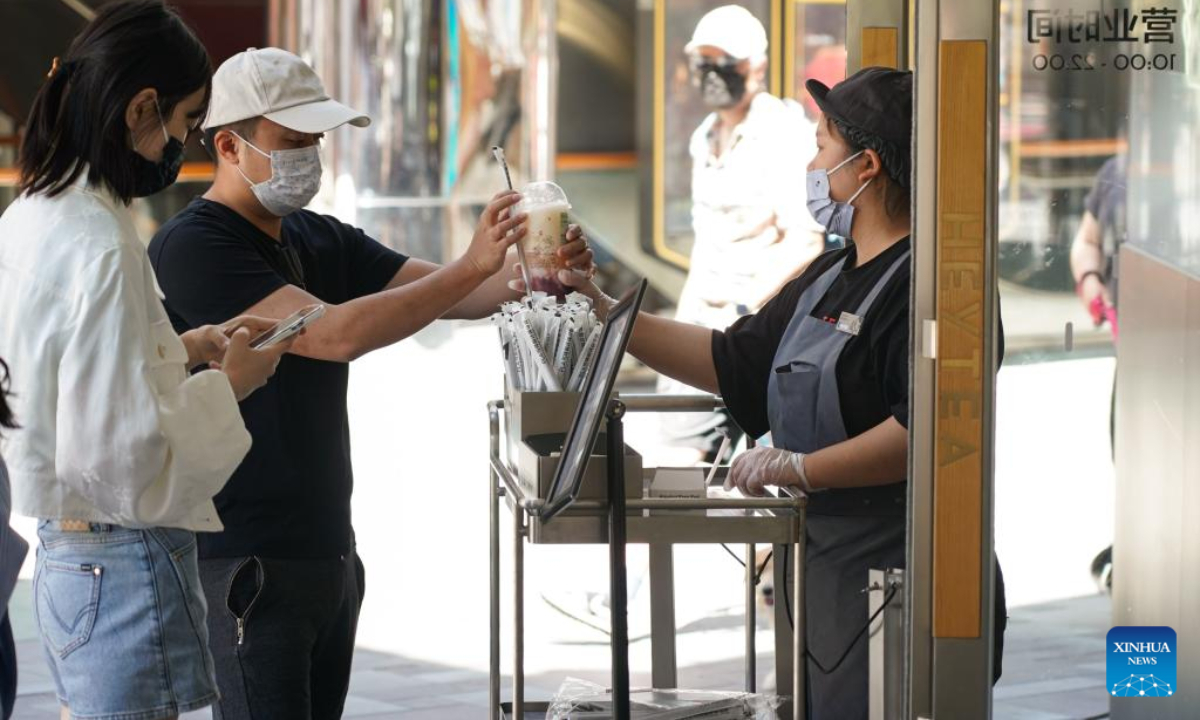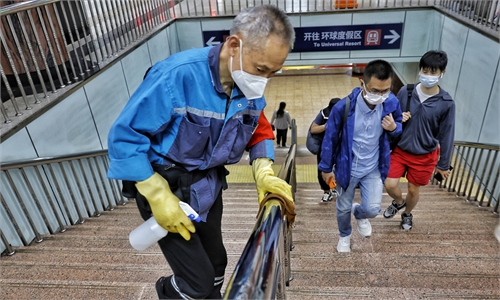Public places in Beijing to set up COVID reporting mechanism, eat-in dining to remain suspended during Dragon Boat Festival

People enjoy themselves at a shopping mall in Chaoyang District of Beijing, capital of China, May 29, 2022. Photo:Xinhua
Hotels, scenic spots, shopping malls in Beijing were told to establish a COVID-19 reporting mechanism during the Dragon Boat Festival to guard against a COVID-19 resurgence in the capital after month-long tough battle against Omicron.
Thirteen districts in Beijing which have not seen positive COVID-19 cases in past seven days at community level have restored normal order of production and everyday life, Xu Hejian, a spokesperson from the Beijing Municipal government announced on Thursday while noting that two districts - Fengtai and Changping - have still registered positive cases in communities.
Beijing registered 14 positive cases on Wednesday and five on Thursday, a sharp drop from previous positive infections last month. Among them, two and one were screened out in communities, respectively on Wednesday and Thursday.
Since April 22, the city reported a total of 1785 positive cases.
Xu said the epidemic has been effectively contained but the existence of positive cases in communities indicates there are risk for epidemic resurgence. Measures must be taken to protect the hard-won achievement.
Liu Xiaofeng from the Beijing disease prevention and control center said as the Dragon Boat Festival approaches, public venues such as hotels, scenic spots, shopping malls should shoulder their due responsibility, establishing a reporting mechanism on COVID-19 related symptoms for both employees and visitors.
During the holidays, restaurants' dine-in services will remain closed. Residents should reduce travel and are encouraged to remain in the city during the holiday. Communities and villages should also take responsibility in registering health codes for visitors while preventing large gatherings.
The Chinese capital city ordered its restaurants to suspend offering in-house catering services starting from May 1 amid Omicron flare-up.

A subway train of Line 15 arrives at China International Exhibition Center Station in Shunyi District of Beijing, capital of China, May 29, 2022. Photo:Xinhua
Some 3400 students from epidemic restricted areas will sit the make-or-break national college entrance exam, known as gaokao, in a few days. Xu said the relevant safeguards will be put in place. Previously, government officials said they will be arranged in separate examination locations taking extra precautions.
At the press conference on Thursday, National Health Commission (NHC) also said the overall epidemic situation in the country continues to improve. Since May 30, the positive infections have fallen below 100 cases, though certain regions are still reporting new cases.
Officials from NHC said the holiday will naturally increase epidemic transmission risk but the anti-epidemic measures should still be targeted and evidence based. A one-size-fits-all approach and anti-epidemic measures escalation should be avoided, this includes avoiding arbitrary extensions of quarantine periods or restricting people from low-risk regions.
The Ministry of Culture and Tourism earlier issued a notice ahead of the holidays, saying that travelers should monitor the epidemic situation at their destinations and avoid visiting high-risk and medium-risk regions.

People buy beverages at a store in Sanlitun, a popular shopping area in Beijing, capital of China, May 29, 2022. Photo:Xinhua
Meanwhile on Thursday, the State Council joint prevention and control mechanism against COVID-19 said it will strengthen inspection of nucleic acid testing institutions, establish a withdrawal mechanism for those institutes that report high volumes of complaints, or consistent quality issues.
A yellow warning will be issued to non-compliant testing organizations, if they fail to make adjustments, their testing qualification may be revoked. Those issue fake testing results or employing fake technicians will be given a red-light warning, meaning their medical institution practicing license will be cancelled. Severe violations face potential legal action, the State Council said.
Previously, several testing labs in Beijing were accused of blending tubes of samples together and diluting samples. Such acts could affect the accuracy of the results of the testing, leading to belated discovery and management of infected people and increasing the risk of community transmission.
Global Times

